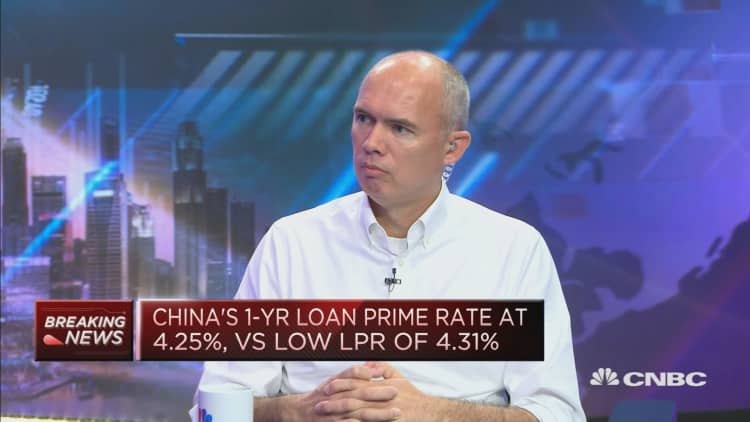
The world's second biggest economy, which is slowing, is past a point where it cannot ignore its enormous debt anymore, according to an analyst.
Fraser Howie, an independent analyst, told CNBC Tuesday that there's a "whole host of hidden debt" in China, which had kick started stimulus this year as its economy slowed.
"China is very much past the tipping point where the debt simply no longer can be ignored. The cost of servicing the debt ... simply distracts from almost everything else," said Howie.
China's total debt — corporate, household and government — rose to over 300% of its GDP in the first quarter of 2019, slightly up from the same period a year earlier, according to a report by the Institute of International Finance.
"China ... (had) this huge stimulus and turn on the credit taps and they drove all this global demand," Howie said. "But there clearly was going to be a cost ... and now they are suffering (from) it."
Of course, not everyone agrees with that point of view. Other market participants, including names such as Bridgewater Associates' Ray Dalio, have argued in detail why debt in China is not economically serious.
Debt levels in China rapidly shot up a few years ago as its banks extended record amounts of credit to drive growth, which led to the Asian giant undertaking deleveraging efforts, or the process of reducing debt.
But the trade war has put a dent in its efforts to pare its massive debt as Beijing sought ways to boost its slowing economy, which was at its lowest growth in 27 years. Earlier this year, banks started to increase its lending again, with new loans surging to a record high.
In what some analysts called effectively a rate cut, the People's Bank of China also this week launched a key interest rate reform — the loan prime rate — that would make borrowing costs for companies cheaper, and theoretically boost investment.
But Howie told CNBC that the issue was really whether there would be demand for more credit.
"The Chinese economy is clearly slowing, there are a lot of headwinds, there're companies leaving China. China's becoming a much harder investment case for a number of reasons. So is the underlying demand there or not?" he asked.

